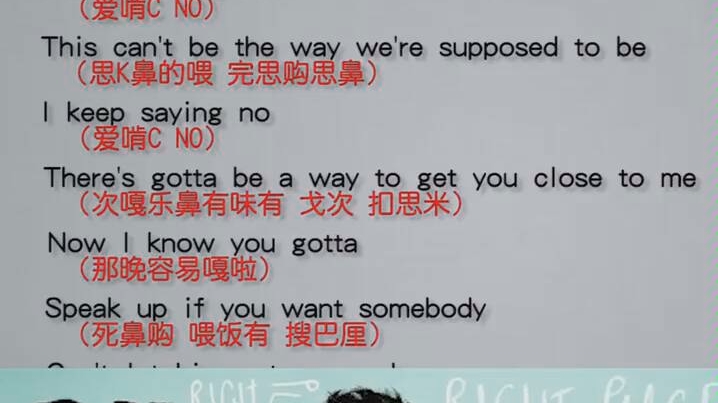重 要 提 示
1、《考點清單解讀》是家長輔導孩子時的教案。
2、《考點清單解讀》將教材的知識點提煉成考點,針對考點詳解詳析,舉一反三。方便家長幫助孩子進行考點學習和課業輔導,讓孩子保質保量完成作業;有助孩子自主學習時聚焦考點,考什么學什么,不浪費時間和精力。
3、萬聯書院教育培訓中心在微信公眾號“wanlianshuyuan365” 發布《考點清單解讀》1-6年級各科各版本的電子版,請您在“查看歷史消息”中查閱。
請關注微信公眾號,免費使用。
小學英語語法大全(二):冠詞、介詞的定義、分類、用法……很全,這一份就夠了
冠 詞
1
定義
冠詞是一種虛詞,本身不能單獨使用,也沒有詞義,它用在名詞的前面(相當于名詞的帽子),幫助指明名詞的含義。
2
分類
共3類:定冠詞(the definite article),不定冠詞(the indefinite article)、零冠詞(zero article)。
3
用法
1、定冠詞的用法
a 、an與數詞one 同源,是"一個"的意思。a用于輔音音素前,而an則用于元音音素前。
(1) 表示某一類人或某事物中的任何一個,經常用在第一次提到某人或某物時,用不定冠詞起介紹作用,表示一個。
i gave him a book yesterday .我昨天給了他一本書
i am reading an interesting story . 我在讀一則有趣的故事。
(2) 表示人或事物的某一種類, 強調整體, 即以其中的一個代表一類。
a horse is useful to mankind. 馬對人類有用。
(3) 不定冠詞用在事物的"單位"前,如時間, 速度, 價格等意義的名詞之前,表示 "每一"。
we often go to school two times a day. 我們常常一天兩次去學校。
i went to the library once a week at least.
(4) 不定冠詞用來指某人某物,但不具體說明任何人或任何物。
a boy came to see you a moment ago. 剛才有一個小孩來找你。
(5)在序數詞前表示"又一;再一"時。如:
i want to read the story a second time 我想再讀一遍這篇小說 。
(6) 表示不特定的"某一個"時。如:
a mr. smith is calling on the phone. 有一位史密斯先生來電話找你 。
(7) 在特定的短語里表示特定的含義,與不可數名詞連用,如:
have a good time 過得高興
(8) 一日三餐前有修飾語時。如:
-mum, what shall we have for lunch?
-jiaozi.
-oh, what a wonderful lunch! i enjoy it very much.
(9) 在形容詞最高級前表示"非常"時。如:
lesson nine is a most difficult lesson, but it isn't the most difficult one.
(10)不定冠詞用于某些詞組中。
a little / a few / a lot / a type of / a pile / a great many / many a / as a rule / in a hurry / in a minute / in a word / in a short while / after a while / have a cold / have a try / keep an eye on / all of a sudden
2.定冠詞的用法
定冠詞the與指示代詞this,that,these,those同源,有"那(這)個" "這(那)些"的意思,但較弱,可以和一個名詞連用,來表示某個或某些特定的人或東西。以下為必須加定冠詞的情形:
(1)在表示雙方都明白的人或物的名詞之前:
take the medicine. 把藥吃了。
(2)在上文提到過的人或事的名稱之前:
he bought a house. i've been to the house.
他買了幢房子。我去過那幢房子。
(3)在指世上獨一無二的事物的名詞之前:
the sun, the sky, the moon, the earth
(4)與單數名詞連用表示一類事物,如:
the fox is cunning .狐貍是狡猾的。
(5)與形容詞或分詞連用,表示一類人:the rich 富人; the living 生者。
(6)用在序數詞和形容詞最高級,及形容詞only, very, same等前面:
where do you live? i live on the second floor. 你住在哪?我住在二層。
that's the very thing that ineed 那正是我需要的東西。
(7)在表示"...世紀...年代"的結構之前
he began to learn russian in the 1950s. 他在20實際50年代開始學俄語 。
但注意:in one's 50s意為"在某人五十多歲時"。如:
he looked quite healthy though he was in his 80s.
(8)在比較級的兩種句型中:
①表示"越 ......,就越......"時。如:
the lighter, the better. 越輕越好 。
②表示"兩者中比較......"時,用定冠詞。如:
there are two books on the table. i like the thicker one.
(9)用在"動詞+sb.+介詞+the+身體部位名稱"的結構中(注意:介詞常用in/on/by)。如:
the ball hit me on the back. 球打中了他的頭 。
(10) 在表示"計量單位"的可數名詞前(注意:介詞用by)。如:
the workers are paid by the hour/day/month. 按月付給工人工資 .
(11)用在某些由普通名詞構成的專有名詞前:the great wall(長城),the people's park(人民公園)等。
the people's republic of china 中華人民共和國
the united states 美國
(12)用在表示樂器的名詞之前:
she plays the piano. 她會彈鋼琴.
the little girl likes to play the violin. 小女孩喜歡拉小提琴。
(13)定冠詞用在文藝活動,運動場所的名稱前。
they are going to the cinema tonight. 他們今晚要去影院看電影。
(14)用在姓氏的復數名詞之前,表示一家人:
the greens 格林一家人 (或格林夫婦)
(15)在方位名詞之前 ,如:in the west on the west
(16)在某些短語中 in the day, in the morning (afternoon,evening), the day after tomorrow ,the day before yesterday, the next morning, in the sky (water,field,country) in the dark, in the rain, in the distance, in the middle (of), in the end, on the whole, by the way, go to the theatre
3、零冠詞(不用定冠詞)
(1) 在物質名詞前,如:
water is very important . 水是非常重要的 。
(2) 在抽象名詞前,如:
failure is the mother of success. 失敗乃成功之母。
(3) 復數名詞表示人或物的種類時,如:
doctors cure patients. 醫生治病救人 .
those people are teachers, not students. 這些人是老師,不是學生 .
(4) 在有關游戲的名詞前,如:
do you like to play chess? 你喜歡下棋嗎 ?
(5) 在"by + 交通工具"的短語里,如:
shall we walk or go by bus? 我們乘車還是步行 ?
(6) 在國名,人名和地名前通常不用定冠詞,如 :
england,mary;
(7)在年份、季節、月份、節日、 假日、日期、星期等表示時間的名詞之前,不加冠詞;
we go to school from monday to friday. 我們從星期一到星期五都上課。
(8)在稱呼或表示官銜,職位的名詞前不加冠詞;
the guards took the american to general lee. 士兵們把這個美國人送到李將軍那里。
(9)在三餐、球類運動的名稱前,不加冠詞 。如:
have breakfast,play chess
(10) 在某些固定詞組中,是否有冠詞,意義不同。如:
in hospital住院,in the hospital在醫院里 in bed在臥床 ,in the bed在床上
in front of在......(外)前面,in the front of 在......(內)前部
go to hospital 去醫院看病 go to the hospital 去醫院 (并不是去看病,而是有其他目的)
口 訣
泛指用a/ an,單數可數;特指用the,不特不the。
釋:
1)泛指用a/ an,單數可數——泛指的單數可數名詞前要用a/ an。
2)特指用the——如果是特指,那么無論是可數名詞單數、復數或不可數名詞前均要用the。
3)不特不the——不特指則不用the,包括泛指的可數名詞單數前用a/ an,泛指的可數名詞復數前不用冠詞,泛指的不可數名詞前也不用冠詞三種情況。
4.定冠詞:特指雙熟悉,上文已提及,世上獨一無二,序數最高級,某些專有名,習語及樂器。
(1)the用在“特指”談話雙方都知道的某個人或某些人或物前。如:
where is the teacher?老師在哪里?
(2)the用在上文已提到的人或事物前。如:
i can see a cat. the cat is lucy”s.我能看見一只貓,那只貓是露茜的。
(3)the用在世界上獨一無二的事物前。如:the earth goes around the sun.地球圍繞著太陽轉。
(4)the用在序數詞或形容詞最高級前。如:
mike is the tallest of the three boys.邁克是三個男孩中最高的一個。
(5)the用在由普通名詞構成的專有名詞前。如:the great wall(長城),the people”s park(人民公園 )等。
(6)the用在一些習慣用語中或樂器名詞前。如:in the day(在白天),play the piano(彈鋼琴)等。
5.不用冠詞:代詞限定名詞前,專有名詞不可數,復數名詞表泛指,學科球類三餐飯,季節星期月份前,顏色語種和國名,稱呼習語及頭銜。
(1)名詞前已有作定語用的this, that, these, those, my, your, his, her, our, their, some等限定詞時,不用冠詞。如:this eraser, her pencil-box, some boxes, those women等。
(2)泛指的不可數名詞前一般不用冠詞。如:meat, rice, water, bread, tea, milk, juice等。
(3)復數名詞表示泛指時,不用冠詞。如:
the people in the room are doctors.
房間里的那些人是醫生。
(4)在表示學科的名詞前一般不用冠詞。如:chinese, english, maths, physics, history等。在三餐飯和球類運動名詞前一般不加冠詞。如:have breakfast/ lunch/ supper, play basketball/ football等。
(5)在季節、節日、星期、月份前不用冠詞。如:autumn, summer, winter, spring, teacher”s day, children”s day, sunday, february等。
(6)在表顏色、語種和國家名詞前不用冠詞。如:white, brown, french, australia等。
(7)在表示稱呼語的名詞之前,以及職務、頭銜的名詞前不用冠詞。如:
doctor green is a scientist. 格林博士是位科學家。
6.有水無湖、有球無星、有山無峰、有獨無歐(二)、有(足)族無球(運動)、有文無章、學而不專:
(1)有水無湖:海、洋、海灣、河等,都用the;單個湖不用the,(但多個湖用the);
the red sea,the pacific ocean,the persian gulf, the yangtze river。the great lakes(五大湖);lake erie(伊利湖)
(2)有球無星:地球,月亮用the;行星不用the: mars,venus;
(3)有山無峰:the huangshan mountains(黃山);mount everest(珠穆朗瑪峰);mount(or mt.) tai(泰山).
(4)有獨無歐(偶):獨一無二的,the earth,the moon,the sun用the;
歐洲等七大洲不用the.europe,africa,asia,north america,south america,antarctica,oceania
(5)有(足)族無球(運動):種族用the:the indians(印第安人);球類運動
baseball,basketball
(6)有文無章:歷史性的文件用the;小說等的章節不用the
the constitution(憲法); chapter one
(7)學而不專:學校放在詞組的前面時用the;專有名詞放在詞組的前面時不用the;
the university of fudan; fudan university
介 詞
1
定義
介詞preposition縮寫prep.,又叫前置詞,表示其后的名詞或代詞(或是相當于名詞的其他短語或從句)與其他句子成分的關系。介詞是一種虛詞,不能單獨在句中作成分。
2
介詞的用法
1、表示時間的(at 、on、in、at、before ,after、by、 until、through、from、since、within)。
(1)at:用于表示時刻,時間的某一點。
at noon在午時、at night在夜間、at present目前
(2)on:用于星期,某天,某一天的上午、下午、晚上(指具體的某一天時,一律用) 、on sunday在星期天 、on sunday morning 在星期天的上午、on march 8 在3月8日。
(3)in:用于表示周、月、季節、年、泛指上午、下午、晚上。
in 1999 在1999年、in november 在11月份、in summer在夏季、in the afternoon在下午過……后(未來時間)
i think he will be back in an hour .我想他一小時后就會回來。
i heard that she would be back in a month.我聽說她一個月后回來的。
(4)before:在……之前
wei hua got up before 7 o’clock this morning .今天早晨,魏華在7點之前起床了。
(5)after:在……之后
after that ,no noe should ever kill a seagull . 從那時起,任何人不得捕殺海鷗。
(6)by:在……前(時間),截止(到)……
by the time i arrived ,she had already gone .在我到達之前,她已經走了。
(7)for:達……之久(表示過了多少時間),可以和一般現在時,過去時,將來時連用,但是經常和完成時連用。
florence often worked for twenty-four hours without rest . 弗洛淪斯常常工作24小時而不休息。
(8)during:在……期間
during the lifetime of one man ,north america and europe will more further apart by nearly two metres .在一個人的一生期間,北美洲和歐洲由于漂移,其間的距離將要增加差不多兩米。
(9)through:一直……(從開始到結束
he ,who led the united states through these years ,was shot on april 14, 1865 ,at a theater in washington 。領導美國度過了這些年代的他,于1865年4月14日在美國華盛頓一家戲院里被人槍殺。
(10)from:從……起(時間
the worders were made to work from 7 in the morning to 7 in the evening .工人們被迫從早7點工作到晚7點。
(11)since:自從……以來(表示從以前某時一直到現在仍在繼續)
since that time ,my eyes had never been very good.從那時起,我的眼睛一直不是很好。
(12)within:不……超過的范
he will arrive within an hour .他一小時內就人到。
2、表示地點(at、in、on 、under、over、above、below、near、by、between、among、around、around、in front of、behind、in 、into、out of、along、across、,through、to、for、from)。
(1) at:在某地點(表示比較狹窄的場所
at school上學、at home在家、at 320 xinfu district 在新撫區320號 at the station 在火車站
(2)in:在某地(表示比較寬敞的場所
she will arrive in shanghai at ten .10點她將到達上海。
(3)表示地點方向的on ,under ,over ,above ,below
①on:在……上面,有接觸面on the table 在桌子上面
②above:在……上方sometimes juliana could hear planes above the trees.有時朱莉安娜能聽到樹林上空的飛機聲。
③over:在……正上方,是under的反義詞,over these tombs ,they built pyramids .在這些墳墓上,他們建起了金字塔。
④under:在……下面,在……之內。the twin sisters put the basket under the tree .這姐倆把籃子放到了樹下。
⑤below:在……下方,(不一定是正下方)
three thousand metres below her ,she could see nothing except the thick jungle .3000米以下,除了茂密的叢林之外,她什么也看不見。
(4)near ,by
①near:近的,不遠的(=not far)是的反義詞,near還可以指時間,in the near future在不遠的將來。
green’s lake was a small lake near his home .格林湖是他家附近的一個小湖。
②by:在……旁邊,比的距離要近
juliana walked by the side of the river for six more long days .朱莉安娜沿著河岸又走了足足6天。
(5)between ,among ,around
①between:在兩者之
the differences between american english and british english are not very great .美國英語和英國英語之間的差別不是很大。
②among:在三者或者更多的之中
there are some american students among us .在我們中間有幾個美國學校。
③around:環繞,在…..的周圍,在……的四周
they arrived at a valley with high mountains all around it .他們到達了四周有高山環繞的山谷
(6)in front of ,behind
①in front of :在……的前面
there is a car in front of the house .房子前面有一輛小汽車。
②behind :在…..后邊
are there any cows behind the house ?房子后面有一些牛嗎?
(7)in ,into ,out of
①in:在…..之內,用于表示靜止的位置
there are four girls in the room.房間里有4個女孩。
②into:進入,用于表示有特定終點的運動方向,通常用于表示動作的動作之后。如:come ,go ,walk ,jump ,run..
she took me from the hall into my classroom .她把我從門廳帶進我的教室里邊去。
(8)along ,across ,through
①along:沿著
go along zhongshan road and turn right at the second crossing .沿著中山路走然后在第二個十這路口向右拐。
②across:橫過(平面物體)
very slowly,the continents are moving across the face of the world .各個洲在地球表面緩緩漂移。
③through:貫通,通過
the students walked through the gate with uncle wang .學生們隨著王叔叔通過大門。
(9)to ,for ,from
①到達……地點(目的地)或方向
where’s jack? he has gone to london.杰克上哪了?他去倫敦了。
②for:表示目的,為了……
do you know what he comes here for ? 你知道他為什么來這兒嗎?
③from:從……地點起
how far is it from london to new york? 從倫敦到紐約有多遠?
3
表示手段和材料的介詞用
(1)with
①和……在一起
these plates keep moving ,like great ships ,carrying the continents with them .這些板塊載著各個大陸,像航船一樣不斷地漂移。
②具有,帶有
a person with good manners is always kind and polite.有禮貌的人總是和和氣氣,彬彬有禮的。
③用某種工具或方法
he could swim with some special swimming shoes.穿著一些特制的游泳鞋,他能游泳。
(2)in:表示用什么材料(例如:墨水,鉛筆等)或用什么語言。表示衣著,聲調特點時,不用with而用in。what’s this in english. 這個用英語怎么說?
(3)by:通過……方法,手段
what do you mean by the word“island”? “island”是什么意思
i prefer traveling by train .我更喜歡乘火車旅行。
4
其他
(1) of , from
①of 屬于)……的,表示…..的數量或種類
it was beginning of the term .這是學期開始的時候。
②from:來自(某地,某人),以….起始
she is a lady from canada .她是一位加拿大的女士。
(2)without ,like ,as
①without :沒有,是with的反義詞
she often worked for twenty-four without rest .她通常工作24小時而不休息。
②like:像……一樣
like many children of her age ,ding fang is a young pioneer .像很多同齡的孩子一樣同,丁芳是個少先隊員。
③as:作為
they are carrying us as passengers.它們把我們當作乘客運載著。
(3)against:反對。靠著
everyone tried to fight against the locusts .所有的人奮力撲打蝗蟲。
(4)about:
① 關于,各處,四周
nightingale wrote a book about nursing .南丁格爾寫了一部關于護理方面的書。
②詢問某人,某物的情況或提出建議
what about your family ? 你家里人怎么樣?
5
口 訣
口訣1:年月周前要用in,日子前面卻不行。遇到幾號要用on,上午下午又是in。要說某日上下午,用on換in才能行。午夜黃昏用at,黎明用它也不借。 at也在時分前,說“差”用to,說“過”要用part。
口訣2: in在……里,out在……外,在旁邊的是beside,靠近的為by 。 on在……上,under在……下,above在上頭,below在底下。
口訣3: this、that、tomorrow,yesterday,next、last、one。接年、月、季、星期、周,介詞省略已習慣。 over、under正上下,above、below則不然,若與數量詞連用,混合使用亦無關。' beyond超出、無、不能,against靠著,對與反。besides,except分內外,among之內along沿。同類比較except,加for異類記心間。
口訣4:before、after表一點, ago、later表一段。 before能接完成時,ago過去極有限。
since以來during間,since時態多變換。 與之相比beside,除了last but one。
口訣5:①早、午、晚要用in 例:in the morning 在早上、in the afternoon 在下午、in the evening 在晚上、in the day 在白天
②黎明、午、夜、點與分用at 例: at dawn、 at daybreak 在黎明時候、at noon 在中午、at night 在夜間、at midnight 在午夜、at six o'clock 在6點鐘、at 7:30 (seven thirty) 在7點半、at half past eleven 在11點半、at nine fifteen 在9點15分、at ten thirty a.m. 在上午10點30分、at the weekend 在周末
③年、月、年月、季節、周用in。例;in 1986 在1986年、in 1927 在1927年、in april 在四月、in march 在三月、in december 1986 1986年12月、in july l983 1983年7月
in spring 在春季、 in summer 在夏季、in autumn 在秋季、in winter 在冬季
in the fist week of this semester 這學期的第一周、in the third week 在第三周
④陽光、燈、影、衣、冒 雨用in,在陽光下,在燈下,在樹陰下,穿衣、著裝、冒雨等都要用in。
例:don't read in dim light. 切勿在暗淡的燈光下看書。 they are reviewing their lessons in the bright light. 他們在明亮的燈光下復習功課。 they are sitting in the shade of a tree. 他們坐在樹陰下乘涼。he went in the rain to meet me at the station. 他冒雨到車站去接我。in the bright sunlight 在明亮的陽光下 the woman in white 穿著白色衣服的婦女
⑤將來時態in...以后 例: they will come back in 10 days. 他們將10天以后回來。i'll come round in a day or two. 我一兩天就回來。 we'll be back in no time. 我們一會兒就回來。come and see me in two days' time. 兩天后來看我。(從現在開始) after... (從過去開始)
⑥小處at大處in
i'm in liaoning, at anshan. 我住在遼寧省鞍山市.
有形with無形by,語言 、單位、材料in
例:the workers are paving a road with stone. 工人們正用石子鋪路。(有形) the teacher is correcting the paper with a new pen. 這位教師正用一支新筆批改論文。(有形) "taking tiger mountain by strategy" is a good opera. <<智取威虎山>>是-出好戲。(無形)
the product is separated by distilation into gasoline and gas oil. 這種產品是用蒸餾分離出氣油和粗柴油。 (表示方式、手段、方法--無形)
i really can't express my idea in english freely in-deed. 我確實不能用英語流利地表達我的思想。 (表示某種語言用in)
the kilometer is the biggest unit of length in the metric system. 公里是米制中最長的長度單位。 (表示度、量、衡單位的用in )
this board was cast in bronze not in gold. 這個牌匾是銅鑄的,不是金鑄的。
⑦特征、方面與方式、心情成語慣用in
特征或狀態: they found the patient in a coma. 他們發現病人處于昏迷狀態。he has not been in goodhealth for some years. 他幾年來身體一直不好。 the house was in ruins. 這房屋成了廢墟。 her clothes were in rags. 她的衣跟穿破了。
還有一些心理短語也用in,如: in jest 詼諧地,in joke 開玩笑地,in spite 惡意地, in fairness 公正地,in revenge 報復, in mercy 寬大,in sorrow 傷心地等。
⑧介詞at、to表方向,攻擊、位置、善、惡、分"。
介詞at和to都可以表示方向; 用at表示方向時,側重于攻擊的目標,往往表示惡意;用to表示方向時,突出運動的位置或動作的對象,側重表示善意。
she came at me. 她向我撲過來。
she came to me. 她向我走過來。
he shouted at the old man. 他大聲喝斥那老人。
he shouted to the old man. 他大聲向那老人說
she talked at you just now. 她剛才還說你壞話呢。
she talked to you just now. 她剛才還同你談話呢.
she threw a bone at the dog. 她用一塊骨頭砸狗。
she threw a bone to the dog. 她把一塊骨頭扔給狗吃。
萬聯書院教育培訓中心
專 家 觀 點
小學1、2年級,是學生學習成績好壞的關鍵時期,家長對孩子的課業輔導和培養孩子的自主學習能力至關重要,想做好孩子的課業輔導,方法工具最重要。
1、學習興趣來源于老師鼓勵和表揚。
2、老師表揚來源于課堂表現和成績。
3、學習成績來源于學習方法和習慣。
4、學習習慣來源于學習方式和方法。
5、學習方式分為:①記憶型 ②重復型 ③理解型 。
6、理解型學習方式是學習效果事半功倍的基礎。
7、理解型學習方式來源于理解能力。
8、提高理解能力的最佳手段是大量文字性閱讀。
9、提高理解能力的最佳時間是6、7、8歲。
10、輔導效果好不好,方法、工具最重要。
專 家 建 議
家長要想做好小學1、2年級的課業輔導,建議家長:
1、用《新華字典》幫助孩子進行大量文字性閱讀,以提高孩子理解能力。
2、用《考點集訓與滿分備考》之“考點清單解讀”幫助孩子進行考點學習和課業輔導,讓孩子保質保量完成作業。
3、用《考點集訓與滿分備考》之“考題題庫”幫助孩子進行“圍繞考點,用考題做排查訓練” ,“聚焦難點,從題海跳出題海”,使孩子學習效果事半功倍。
特 別 提 示
小學3、4、5、6年級學段的課業輔導和培優學習,建議學生參加課外輔導班。
總 結
一、1、省市重點初中重點班→省市重點高中重點班→國家重點大學,證明“學習是能力,學校是平臺,成績是關鍵”。
2、學校好不好,考試成績是關鍵;成績好不好,學習規劃、方法、工具最重要(關鍵是家長小學階段對孩子的學習規劃及學習方式方法的引導)。
二、1、小學1-6年級乃至初中階段,課外輔導對學生學習成績很重要。
2、小學1、2年級的學習最關鍵,家長應該成為最優秀的課業輔導老師。
3、課外輔導機構是孩子課外輔導的最佳選擇,作為家長,你需要讓孩子上輔導班(現在孩子在學校學習的時間太短了)。
三、老師和家長不僅應該教給學生知識,更應該教給學生學習知識的方法,并提供有效的學習工具,且監督和鼓勵學生堅持學下去。
四、在小學一、二年級學段,作為家長,你需要:
1、用《新華字典》幫助孩子進行大量文字性閱讀,以提高孩子理解能力。
2、用《考點集訓與滿分備考》之“考點清單解讀”幫助孩子進行考點學習和課業輔導,讓孩子保質保量完成作業。
3、用《考點集訓與滿分備考》之“考題題庫”幫助孩子進行“圍繞考點做考題,鞏固所學,排查不足 ,突破難點,日學日清”,“從題海跳出題海”,使孩子學習效果事半功倍。
五、在小學三、四、五、六年級學段,作為家長,你需要讓孩子上輔導班,最好是與課堂教學同步的“滿分備考特訓班”。
六、認識決定思路,思路決定方法,方法決定過程,過程決定結果,態度決定一切,行動改變未來。
七、讓我們共同幫助孩子做到:
“用《考點集訓》,來滿分備考;用考試成績,上清華北大”!
《考點集訓與滿分備考》一套減輕老師教學負擔,幫助家長輔導孩子,方便學生自主學習的“圍繞考點,用考題做排查訓練”,“聚焦難點,從題海跳出題海”滿分備考工具書。
《考點集訓與滿分備考》是由《考點解讀》、《考題題庫》、《解題題典》三部分組成。
1、考點解讀:將教材的知識點提煉成考點,針對考點詳解詳析,舉一反三。方便家長幫助孩子進行考點學習和課業輔導,讓孩子保質保量完成作業;有助孩子自主學習時聚焦考點,考什么學什么,不浪費時間和精力;
2、考題題庫:題型全、題量足、系統全面、重點突出,讓學生“圍繞考點, 用考題做排查訓練”,“聚焦難點,從題海跳出題海”,使學習效果事半功倍;
3、解題題典:題典式精解精析,讓學生在考試時該得分一分不丟,能得的分技巧性多拿,使考高分、得滿分成為可能。
歡迎到就近書店購買使用
我們將提供更多教考服務
中教萬聯教考專家
長按二維碼 一鍵關注
點擊下方閱讀原文
轉載請注明來自夕逆IT,本文標題:《girl是什么意思中文翻譯》



 京公網安備11000000000001號
京公網安備11000000000001號 京ICP備11000001號
京ICP備11000001號
還沒有評論,來說兩句吧...